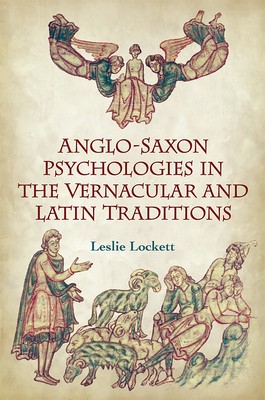
- We will send in 10–14 business days.
- Author: Leslie Lockett
- Publisher: University of Toronto Press
- ISBN-10: 1487522282
- ISBN-13: 9781487522285
- Format: 15.2 x 22.9 x 3.3 cm, softcover
- Language: English
- SAVE -10% with code: EXTRA
Anglo-Saxon Psychologies in the Vernacular and Latin Traditions (e-book) (used book) | bookbook.eu
Reviews
Description
Old English verse and prose depict the human mind as a corporeal entity located in the chest cavity, susceptible to spatial and thermal changes corresponding to the psychological states: it was thought that emotions such as rage, grief, and yearning could cause the contents of the chest to grow warm, boil, or be constricted by pressure. While readers usually assume the metaphorical nature of such literary images, Leslie Lockett, in Anglo-Saxon Psychologies in the Vernacular and Latin Traditions, argues that these depictions are literal representations of Anglo-Saxon folk psychology.
Lockett analyses both well-studied and little-known texts, including Insular Latin grammars, The Ruin, the Old English Soliloquies, The Rhyming Poem, and the writings of Patrick, Bishop of Dublin. She demonstrates that the Platonist-Christian theory of the incorporeal mind was known to very few Anglo-Saxons throughout most of the period, while the concept of mind-in-the-heart remained widespread. Anglo-Saxon Psychologies in the Vernacular and Latin Traditions examines the interactions of rival - and incompatible - concepts of the mind in a highly original way.EXTRA 10 % discount with code: EXTRA
The promotion ends in 15d.19:28:21
The discount code is valid when purchasing from 10 €. Discounts do not stack.
- Author: Leslie Lockett
- Publisher: University of Toronto Press
- ISBN-10: 1487522282
- ISBN-13: 9781487522285
- Format: 15.2 x 22.9 x 3.3 cm, softcover
- Language: English English
Old English verse and prose depict the human mind as a corporeal entity located in the chest cavity, susceptible to spatial and thermal changes corresponding to the psychological states: it was thought that emotions such as rage, grief, and yearning could cause the contents of the chest to grow warm, boil, or be constricted by pressure. While readers usually assume the metaphorical nature of such literary images, Leslie Lockett, in Anglo-Saxon Psychologies in the Vernacular and Latin Traditions, argues that these depictions are literal representations of Anglo-Saxon folk psychology.
Lockett analyses both well-studied and little-known texts, including Insular Latin grammars, The Ruin, the Old English Soliloquies, The Rhyming Poem, and the writings of Patrick, Bishop of Dublin. She demonstrates that the Platonist-Christian theory of the incorporeal mind was known to very few Anglo-Saxons throughout most of the period, while the concept of mind-in-the-heart remained widespread. Anglo-Saxon Psychologies in the Vernacular and Latin Traditions examines the interactions of rival - and incompatible - concepts of the mind in a highly original way.

Reviews